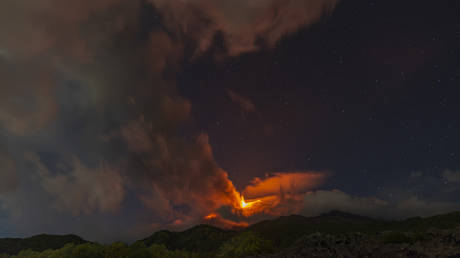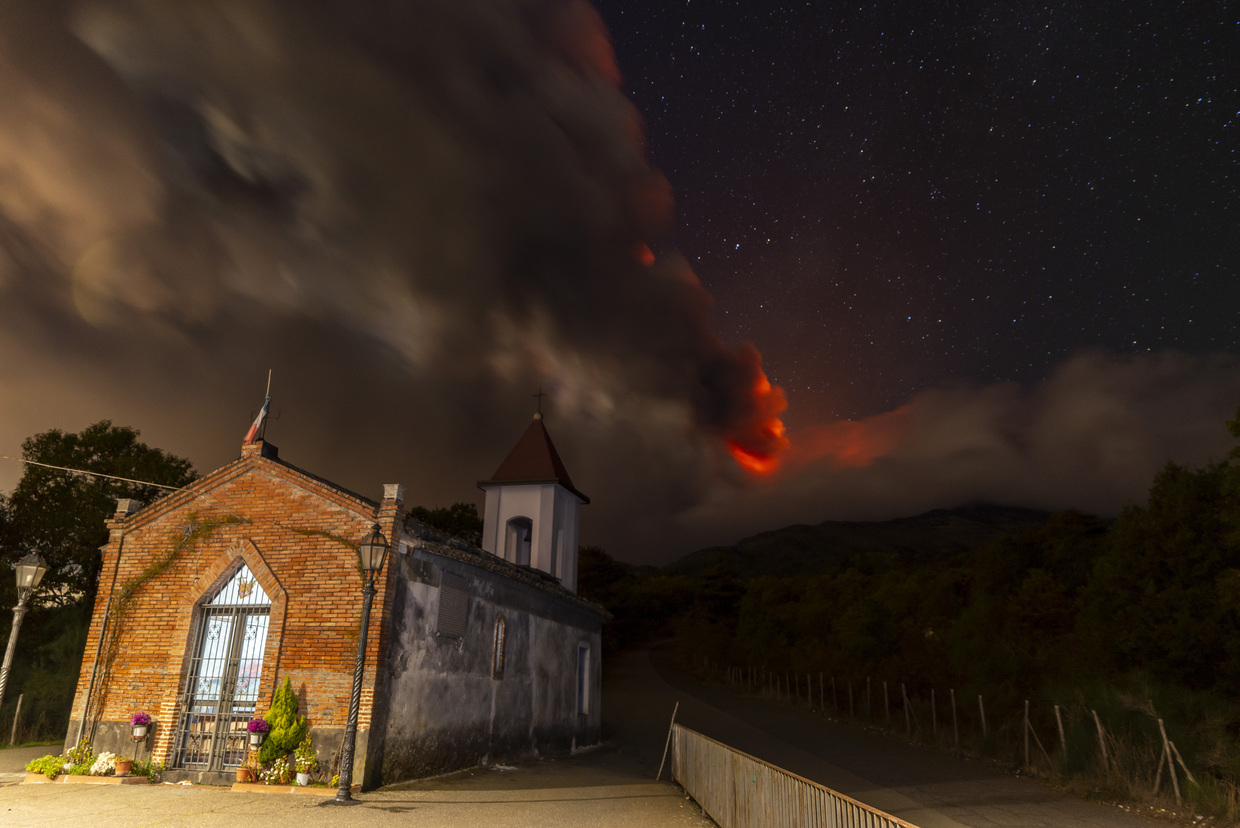
A temporary ‘red alert’ for flights was issued after activity at Mount Etna in Italy
Europe’s tallest active volcano, Mount Etna, has erupted once again, launching lava more than a kilometer into the air above its southeast crater, Italy’s National Institute of Geophysics and Volcanology (INGV) has reported.
The eruption on the Italian isle of Sicily, which was the first in three months, came after several days of volcanic tremors and the emission of large clouds of scalding gasses.
A fountain of molten rock was seen surging into the air while lava made its way down Etna’s slopes. The resulting clouds of ash were carried to coastal towns north of Catania, peppering the nearby counties and covering cars and buildings, according to the Etna Observatory.
The volcanic ash will settle and provide fertile soil for the surrounding vineyards and gardens, another reminder of the relationship that local farmers share with the mountain on their doorstep.

© AP Photo / Salvatore Allegra
The notoriously unpredictable Mount Etna is the most active volcano in Europe, and on average erupted once a month between 2021 and 2022.
The INGV has currently lowered the alert level to orange and continues to monitor the situation. Operations at Catania Airport have thus far not been disrupted and no damage has been reported.

© Salvatore Allegra / Anadolu via Getty Images
While the current eruption has not caused any casualties, nine tourists were killed and a number of others injured in September 1979 when an explosion shook the Bocca Nuova area of Etna’s central crater, leading to changes in tourism policy. More recently, in 1987, two tourists were killed by an explosion in the southeast crater, the scene of the current activity.
READ MORE: Nordic country declares emergency over volcanic eruption threat




